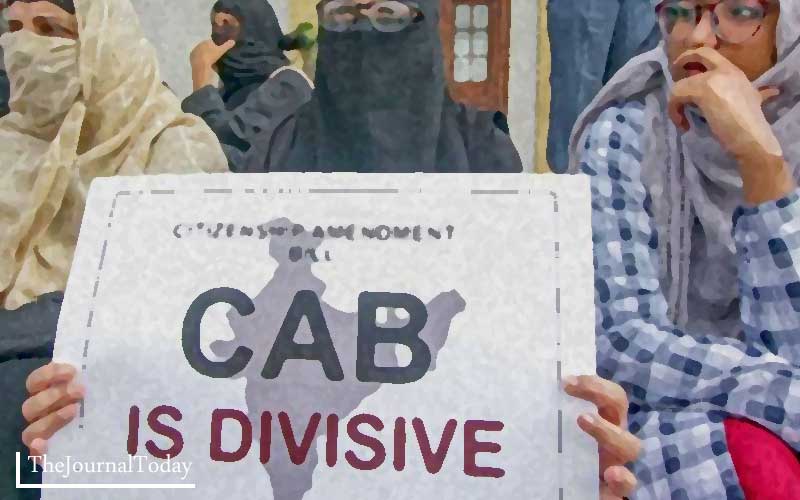The Indian government is all set to revise The Citizenship Bill 2019. The Indian parliament of Rajya Sabha cleared the debated and polarising legislation by 125-99 votes. The Citizen Bill seeks to amend the illegal immigrants of Hindu, Sikh, Parsi, Buddhist, and Christian from Bangladesh, Pakistan, and Afghanistan, who have lived in India before December 31st, 2014, illegal is granted Indian Citizenship in six years. The Indian Citizenship standard eligibility criteria are 12 years of residence in India to be naturalized.
The opposition party in India oppose by quoting that
The Citizenship Bill discriminates against Muslims immigrants and residents in India and that it violates the right to equality enshrined in the Indian Constitution.
Here are a few points on why some Indians believe it questions the ideal state of India.
- Who would make the cut-off date?
- The Indian Central Government’s Logic behind the Citizenship Bill?
- Does the Bill cover the North-east of India?
- The Outrage of Assam
- Is the Bill as same as the Indian National Register of Citizens (NRC)?
- The Indian Opposition party’s agitation against the ruling government
Who would make the cut-off date?
The Indian Legislation of Citizenship Bill implies to those who were “impelled or forced to seek shelter in India due to oppression on the grounds of religion.” The Indian Citizenship Bill aims to assure these people from proceedings of illegal migration to India. The cut-off date announced by the Indian government for citizenship is December 31st, 2014. It implies that to those illegal immigrants who have entered India on or before the given date. The Indian Citizenship criteria, under the current law of India by their constitution states for those, either born in India or if they resided in India for a minimum of 11 years. However, This Bill implies to propose a sub-section (d) to Section 7, enacting for cancellation of Overseas Citizen of India (OCI) registration in which the OCI card-holder has violated any provisions of the Citizenship Act by the constitution of India.
The Indian Central Government’s Logic behind the Citizenship Bill?
The Indian Central government quotes that the majority groups in India, have come escaping persecution in the Islamic – majority Nation. However, the logic by the Central Government of India is not consistent. The Citizenship Bill does not protect any religious minorities, nor does it apply to neighbor Indian nations. The Ahmadiyya Muslim community and the Shias face discrimination in Pakistan. The Rohingya Muslim community and Hindus face persecution in the neighboring state of India, Burma. Also, the Hindus and Christians Tamilians in Sri Lanka face the same discrimination. To which, the Indian government states that Muslims can seek refuge in the Islamic States.
Does the Bill cover the North-east of India?
The Indian Citizenship Bill will not be applicable upon all the Schedule Tribes who are unidentified by the Indian Constitution. The bill with not be applied to autonomous tribal-dominated regions in Assam, Meghalaya, Mizoram, and Tripura. The Bill continues to state that it will also not apply to the states in India that have the inner line permit regime, the states are Arunachal Pradesh, Nagaland, and Mizoram.
The Outrage of Assam
Among the states in the North-east of India, Assam’s outrage against The Citizenship Bill has been the most intense debate and agony among the people of Assam on the roads. The Assam’s outrage and protests stem from the fear of illegal Bengali Hindu illegal migrants from Bangladesh if regularised under The Indian Citizenship Bill will threaten the linguistic and cultural identities of the state. Though, half of these states have already been exempted from the Indian legislation.
Is the Bill as same as the Indian National Register of Citizens (NRC)?
The National Register of Citizen that we witnessed in the Indian state, Assam, only addressed illegal immigrants. A person to avail the registration had to prove either they or their ancestors were living in Assam on or before March 24th, 1971. The NRC is extended to the rest of India, but unlike the Citizenship Bill, it is not based on religion.
The Indian Opposition party’s agitation against the ruling government
The Indian Opposition party claims that the Bill aims to ringfence the Muslim community by acknowledging all other religious communities. They also state that the bill aims to legally establish Muslims as second-class citizens of India by administering treatment to other religious groups. This violates the Indian Constitution’s Article 14, the fundamental right to equality to all citizens of India. Any Parliament of India cannot amend the basic fundamental right. And yet, the Indian government states that it does not discriminate against any religion or violate the right to equality.
The Indian Citizenship Bill 2019 is up for debate and protests in Assam may continue for days. Only time will tell if this implementation will benefit India in the future.
